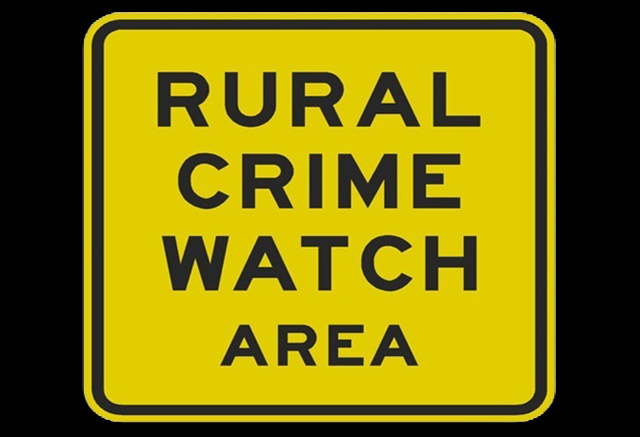Great turnout for Flagstaff Rural Crime Watch meeting

Flagstaff Regional Emergency Services Coordinator Kim Cannady started off the inaugural meeting of the Flagstaff Rural Crime Watch Society on Thursday, October 27, saying, “I’m pleased to see so many people out tonight.”
Cannady introduced Trevor Tychkowsky, President of the Alberta Rural Crime Watch Association, who is a member of the Smoky Lake Rural Crime Watch, and has been on the provincial board for more than a decade to give a presentation about Rural Crime Watch.
Tychkowsky first explained the connection between RCMP and Rural Crime Watch (RCW) organizations, saying RCW is a prevention based group, established with the RCMP to reduce crime in outlying areas.
“We are a passive group, who have taken our beliefs about protecting our belongings and our neighbours to the next level.
“We are neighbours looking out for neighbours. We are the eyes and ears of Rural Alberta.”
The RCW mission is to promote rural crime prevention through communication and programs.
The role of the RCW, says Tychkowsky, is to assist RCMP when asked, to promote awareness with regards to crime prevention; promote awareness through sharing information regarding techniques, products, and ideas; to interact and share information with other crime prevention groups; and to study problems of concern with regards to the rural area’s prevention of crime.
Tychkowsky said anyone can become a member of the RCW, as long as they live within the society’s area, and have no criminal record. Many groups require members to complete an application form, and some also require criminal records checks, although the new Flagstaff group has not yet made a determination on member criteria.
These sessions can cover telephone fraud, banking fraud, contractor fraud, drugs, and other topics. “These sessions can help you understand what is going on in the neighbourhood.”
Many RCW groups receive information via phone fan out systems.
Tychkowsky gave an example of how information on drug activity can help members spot clandestine labs and learn what to do if they suspect that one is in their area.
He also talked about many phone scams and common frauds, identity theft, and other criminal activities that can separate innocent victims from their money.
Tychkowsky also spoke about the RCW phone fanout system, noting that it is a useful tool for getting information out, but is also kind of outdated, as many homeowners don’t have a home line anymore.
“It’s still effective,” he says.
He added, however, that fanout systems are in the early stages of being obsolete.
Read more of this story in the latest edition of The Community Press – still available on newsstands and online via E-Subscription!
The board will have to meet to make a number of decisions, open a bank account, and then will start looking for broader membership.
Leslie Cholowsky
Editor
with notes from Ally Anderson









